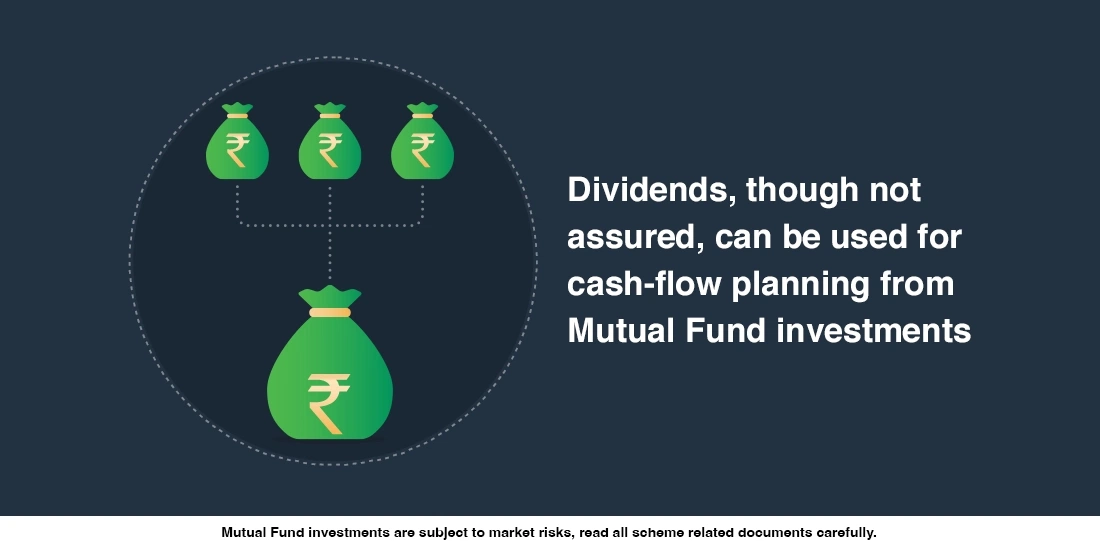What is Mutual Fund Dividend?
1min 5 seconds read

A Dividend is a distribution of earnings from a stock or a Mutual Funds . In Mutual Fund schemes, dividends are distributed when the fund has booked profits on the sale of securities in its portfolio.
As per regulation, a fund can declare dividends only from the gains it has made from the sale of securities in the portfolio, or through any current income in the form of interest or dividends. Such gains are transferred to a Dividend Equalization Reserve, and at the discretion of the trustees, a dividend is declared.
Dividends are declared as a percentage of the scheme’s face value (FV), and not the NAV. If FV per unit is Rs. 10 and dividend rate is 20%, every investor in the dividend option gets Rs.2 as dividend. However, the NAV, of the scheme falls by an equivalent amount after dividend declaration. Investors in the growth option are not entitled to the dividend, and the profit from the scheme is ploughed back into the scheme in this case. Thus, NAV of growth option increases in contrast to dividend option.
With effect from 01 Apr 2020, dividends from mutual fund schemes have been made taxable in the hands of investors. Investors opting for dividend payout will now have to pay income tax on any dividend income received in a financial year at the highest income tax rate applicable to them. Investors opting for dividend reinvest will not have any implication on their taxes since they receive the profit in terms of additional units allotted in their folio.